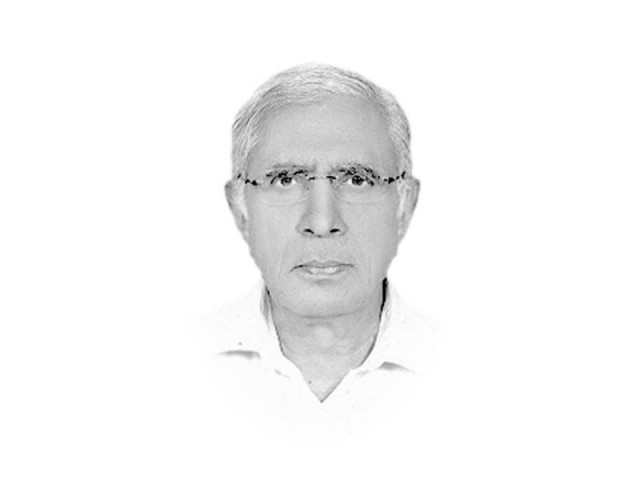Keep talking
Even the staunchest of Nawaz supporters in their hearts of hearts would find it impossible to disagree with demands.

Keep talking
Together, the news and views channels, using a rule of thumb, are estimated to cover almost 80 per cent of the population. The talk shows that punctuate the pronouncements of the two leaders attempt to give on a daily basis a meaning to the message of the day but without succeeding in any significant way in changing the mind of the viewers. By now, the viewers have categorised each talk-show anchor by the way he conducts the show, selects his guests and guides the arguments. So they listen to only those anchors that they believe promote their side of the argument.
Clearly, the broadcast media has added an entirely new dimension to political campaigning in the country. That the PTI sit-ins are being replicated in major Pakistani cities and that its reverberations are being heard even in London, makes it abundantly clear that Imran’s media campaign is meeting a measure of success. That so far, Qadri has not been able to do much on this front could mean that perhaps his sit-in crowd is all that he has got.
Imran wants Prime Minister Nawaz Sharif to resign and offers himself to be investigated by a Supreme Court Commission on charges of being allegedly involved in rigging the 2013 general elections. Qadri wants the system itself to be wrapped up and rulers arrested and proceeded against in courts of law for their alleged plunder of the country.
Notwithstanding the fact that both these particular demands are unconstitutional, illegal and morally untenable, one cannot but discern a universal appeal in the rest of the demands of the two. Imran is so right when he says that rich are becoming richer and the poor, poorer. And also, it is impossible not to agree with Qadri that the system has failed to deliver all these 67 years.
And who would disagree with Imran’s demands for investigating the alleged rigging of the last polls under the auspicious of a Supreme Court Commission, reconstitution of the election commission and electoral reforms? Qadri’s demands appear even more compelling: he wants the culprits responsible for killing 14 of his supporters on June 17 to be brought to book; he also wants to establish an egalitarian society as promised by founder of Pakistan Quaid-e-Azam Muhammad Ali Jinnah; complete alleviation of poverty; provision of basic necessities; free education; justice; health facilities; rights to workers and farmers; eradication of rich and poor gap; accountability of all kinds of corruption and its elimination from the society to improve system, society and governance; reforms in political, electoral and socio-economic system so that Articles 62 and 63 could be implemented in letter and in spirit; no martial law; eradication of all kinds of terrorism from the country; devolution of powers as practised in America, Canada and European countries; more provinces; all necessary rights to the minorities; Gilgit-Baltistan be made a province; and provision of rights to women.
Even the staunchest of Nawaz supporters in their hearts of hearts, one would like to believe, would find it impossible to disagree with these demands. Perhaps, even the Sharifs would not be averse to any of these demands. In fact, all of those 11 or so parliamentary parties which have passed a resolution condemning the demand of Imran and Qadri the PM’s resignation and for the system to be packed up may find the rest of the demands of the two very much in accordance with their own aspirations. So, how does one pursue this national objective without the PM having to resign and the system getting packed up? Of course, not by quarrelling but by consensus.
Published in The Express Tribune, August 27th, 2014.
Like Opinion & Editorial on Facebook, follow @ETOpEd on Twitter to receive all updates on all our daily pieces.















COMMENTS
Comments are moderated and generally will be posted if they are on-topic and not abusive.
For more information, please see our Comments FAQ